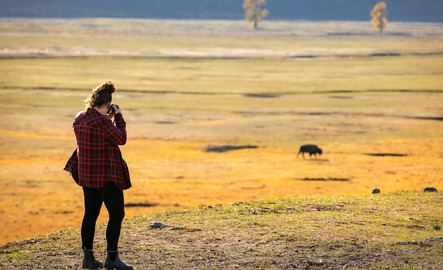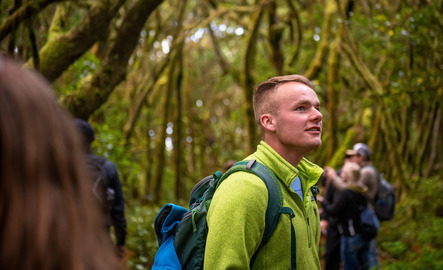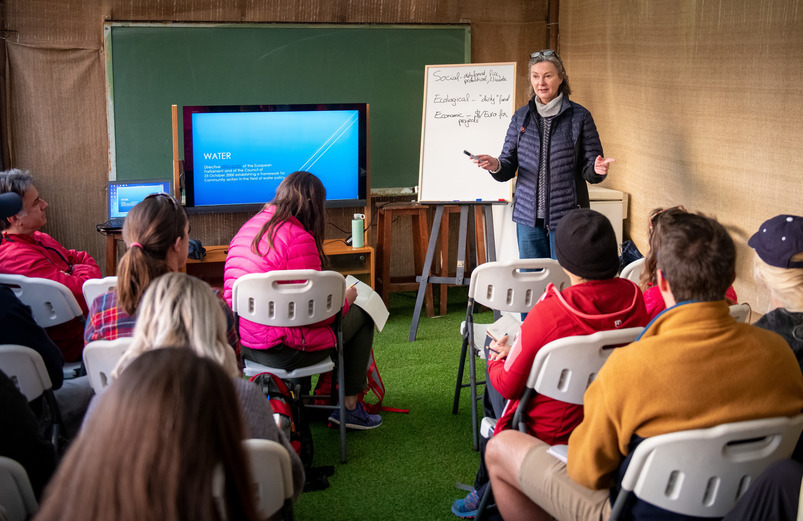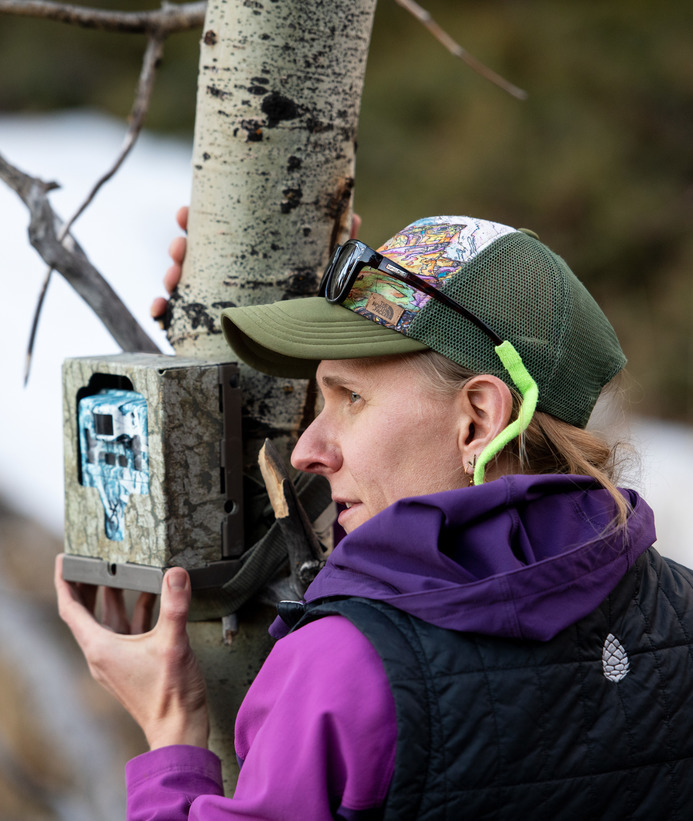What is Environmental Systems Science?
The environmental systems science (ESS) bachelor's degree program at the University
of Wyoming will give you an introduction to the biological, physical and human components
of the earth system through data collection, statistical analysis, information technology
and modeling.
This interdisciplinary degree will hand you the tools you'll need to succeed in an
interconnected world. A bachelor's degree in environmental science from the Haub school
emphasizes the development of essential skills such as integrative thinking, conducting
scientific investigations, applying systems concepts to environmental problems and
using technological tools to examine spatial and temporal patterns.

An applied experience is required of the environmental systems science major. Professional and applied experiences that include internships, summer employment, service, semesters studied abroad, faculty-led field courses and undergraduate research are highly ericouraged of every Haub School student. This idea is emphasized in freshman advising orientation meetings, and we encourage applied learning opportunities at the very start of and throughout your academic career at UW.

What Can You Do With an Environmental Systems Science Bachelor's Degree?
Graduates of the environmental systems science bachelor's degree program go on to manage public lands, national parks, wilderness areas and more some of their duties involve gathering data, monitoring environmental conditions in the field and advising based on environmental risk, vulnerability and responsibility. The Haub School will get you in touch with your creative side while also driving you to use your critical thinking skills and build your tool belt. The opportunities and experiences you'll receive as an environmental major will allow you to pave a way for your future.
The University of Wyoming environmental systems science degree program has been designed to lead to careers such as:
- Conservation Coordinator
- Environmental Analyst
- Consulting Forester
- Research Scientist
- Environmental Scientist
- Natural Resource Specialist
- Regulatory Affairs Analyst
- Planning and Environmental Specialist
- Wilderness Park Ranger
Here are just a few places where UW alumni are making their marks:
- The Nature Conservancy
- Western EcoSystems Technology
- National Park Service
- USDA Forest Service
- Trihydro Corporation
- Bureau of Reclamation
- KC Harvey Environmental
Earning a bachelor's degree in environmental science comes with a range of benefits, especially if you're passionate about sustainability, science and making a real-world impact. You'll gain a strong foundation in biology, chemistry, ecology and data analysis while learning how to assess and solve complex environmental problems. This interdisciplinary training prepares you for careers in conservation, environmental consulting, policy, research and more. You’ll also develop valuable skills in critical thinking, fieldwork and scientific communication—all highly sought after in today’s job market. Plus, it’s a great stepping stone for graduate study in environmental science, law or public health.
The environmental science bachelor's degree is a four year program.
Hands-On Learning with Purpose and Support
During your environmental system science studies at UW, you will have plenty of hands-on experiences that allow you to get up close and personal with the Earth while continuing to develop your understanding of environmental problems in several realms. However, you won't be alone. You'll be surrounded by peers who have the same passions as you and mentors ready to develop your knowledge.



